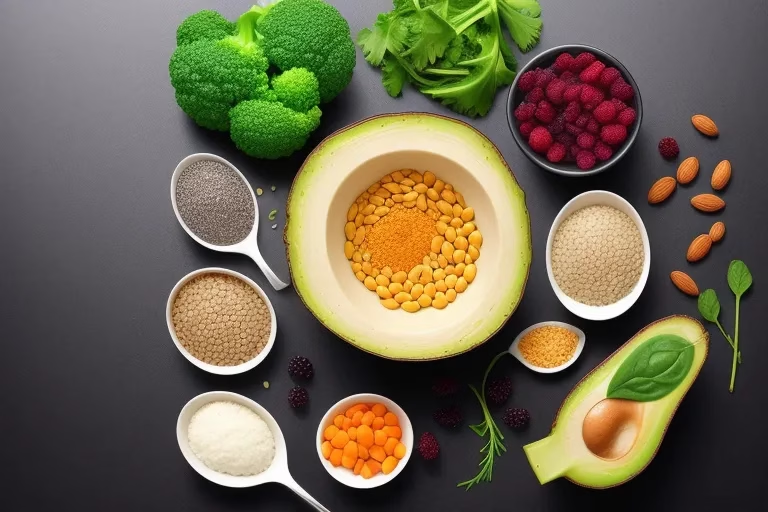Introduction: Why Nutrient-Dense Foods Matter
In a world full of highly processed meals and sugary snacks, it's easy to miss out on the essential nutrients our bodies need. That’s where nutrient-dense foods come in. These powerhouse foods pack a high amount of vitamins, minerals, and other essential nutrients into every bite — without the empty calories.
Whether you're looking to lose weight, boost energy, or simply eat better, choosing nutrient-rich foods can transform your health. In this guide, we'll explore what makes a food nutrient-dense, reveal the top 25 options, and show you how to incorporate them into your everyday meals.
What Are Nutrient-Dense Foods?
Nutrient-dense foods are foods that provide a large amount of essential nutrients (like vitamins, minerals, protein, fiber, and healthy fats) relative to their calorie content. These foods help you get the most nutrition for every calorie you eat.
Key Traits of Nutrient-Dense Foods:
-
High in nutrients: Rich in vitamins, minerals, fiber, and phytonutrients.
-
Low in added sugars, sodium, and unhealthy fats.
-
Minimal processing: Often found in their whole, natural form.
Examples include leafy greens, fatty fish, nuts, seeds, legumes, and whole fruits.
Top 25 Nutrient-Dense Foods to Fuel Your Body
Below is a list of some of the most nutrient-dense foods on the planet, based on their nutrient-per-calorie value.
1. Kale
-
High in Vitamin K, A, and C
-
Contains antioxidants and anti-inflammatory compounds
-
Great for salads, smoothies, or stir-fry
2. Salmon
-
Excellent source of Omega-3 fatty acids
-
Rich in protein and B vitamins
-
Helps support heart and brain health
3. Blueberries
-
Packed with antioxidants like anthocyanins
-
Supports cognitive function and heart health
-
Low in calories but full of flavor
4. Eggs
-
Loaded with protein and essential amino acids
-
Contains choline, which supports brain health
-
One of the most complete protein sources
5. Sweet Potatoes
-
High in beta-carotene (Vitamin A)
-
Great source of fiber and complex carbs
-
Naturally sweet and perfect for baking or roasting
6. Spinach
-
Rich in iron, folate, and magnesium
-
Low-calorie leafy green with powerful anti-inflammatory properties
7. Quinoa
-
A complete plant-based protein
-
Contains iron, magnesium, and fiber
-
Naturally gluten-free and versatile
8. Avocados
-
Full of healthy monounsaturated fats
-
Rich in potassium and fiber
-
Supports heart health and skin glow
9. Liver (Beef or Chicken)
-
One of the most nutrient-dense animal products
-
Extremely high in iron, Vitamin A, and B12
10. Broccoli
-
Loaded with fiber, Vitamin C, and cancer-fighting compounds
-
Tastes great roasted, steamed, or raw
Other Nutrient-Dense Power Foods:
-
Chia Seeds – Omega-3s, fiber, and calcium
-
Greek Yogurt – Protein, probiotics, and calcium
-
Almonds – Vitamin E, fiber, and healthy fats
-
Sardines – Calcium, selenium, and Omega-3s
-
Pumpkin Seeds – Zinc, magnesium, and protein
-
Brussels Sprouts – Folate, Vitamin C, and antioxidants
-
Seaweed – Iodine, calcium, and iron
-
Garlic – Allicin, B6, and immune-boosting properties
-
Carrots – Beta-carotene and fiber
-
Berries (Raspberries, Blackberries) – Fiber and antioxidants
-
Cabbage – Vitamin K, fiber, and cancer-fighting compounds
-
Cauliflower – Low-carb and vitamin-packed
-
Turmeric – Curcumin (anti-inflammatory and antioxidant)
-
Beans (Black, Kidney, Pinto) – Fiber, iron, and plant protein
-
Citrus Fruits – Vitamin C, fiber, and hydration
How to Add More Nutrient-Dense Foods to Your Diet
Incorporating nutrient-dense foods doesn’t require a complete diet overhaul. Small, simple changes can make a big impact.
Tips for Everyday Eating:
-
Start your day with a smoothie packed with spinach, berries, chia seeds, and Greek yogurt.
-
Swap white rice for quinoa or cauliflower rice.
-
Use avocado instead of mayo or butter.
-
Roast a mix of vegetables like broccoli, carrots, and Brussels sprouts as a dinner side.
-
Snack on nuts or pumpkin seeds instead of chips.
-
Add beans to soups, salads, and tacos for a fiber boost.
Benefits of Eating Nutrient-Dense Foods
Adding more nutrient-dense foods to your meals can lead to powerful health benefits:
✅ Supports Healthy Weight
You get more nutrition with fewer calories, which helps reduce cravings and keeps you full longer.
✅ Boosts Energy
Nutrient-rich foods provide your body with what it needs to create steady, lasting energy.
✅ Strengthens Immunity
Vitamins like C, D, and zinc found in many nutrient-dense foods help fight off illness.
✅ Enhances Mental Clarity
Omega-3s, iron, and B-vitamins found in foods like salmon and leafy greens are linked to better focus and mood.
✅ Lowers Risk of Chronic Diseases
Diets rich in whole, nutrient-dense foods are associated with a lower risk of heart disease, diabetes, and cancer.
FAQs About Nutrient-Dense Foods
Q: Are nutrient-dense foods expensive?
Not always. Beans, carrots, cabbage, and eggs are all affordable and loaded with nutrients.
Q: Can I eat nutrient-dense foods on a plant-based diet?
Absolutely! Lentils, quinoa, leafy greens, nuts, and seeds are perfect for plant-based eaters.
Q: How do I know if a food is nutrient-dense?
Check the label or research its nutrient-to-calorie ratio. Whole foods that are high in vitamins and minerals (but low in added sugars or fats) are a good sign.
External Source Suggestions:
Final Thoughts: Make Every Bite Count
Choosing nutrient-dense foods doesn’t mean giving up flavor or joy in eating — it means fueling your body in the best way possible. Whether you're aiming for better health, more energy, or a balanced diet, these powerful foods are your best allies.
